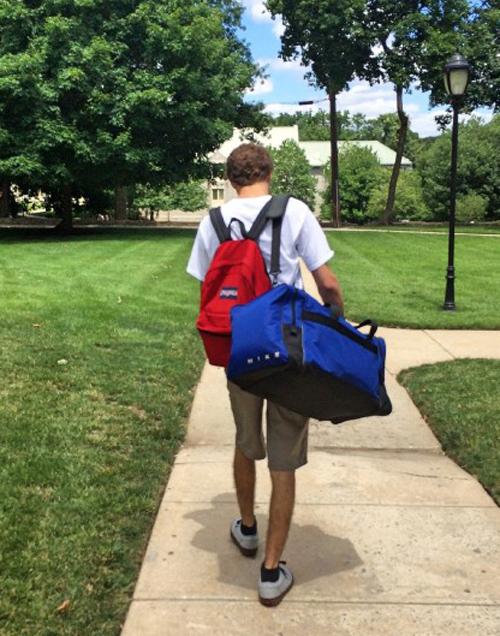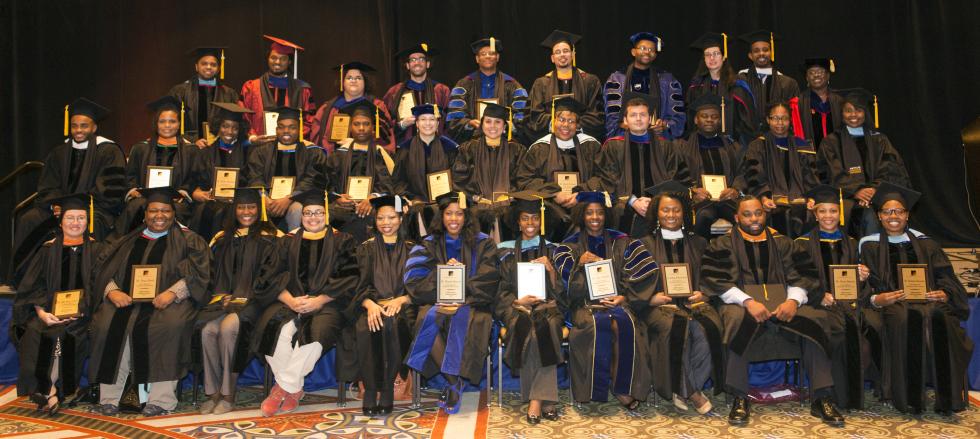Programs & Services
Quick access to SREB programs and services
If you know the name of an SREB program, initiative or service, you’re in the right place. If not, browse for helpful policy and data information by topic, education level or state.
Academic Common Market
Study in a specialized field at an out-of-state college and pay in-state tuition rates.
Looking for a college degree not offered by a public institution in your home state? The Academic Common Market may be able to help. Many students qualify for in-state tuition to study at out-of-state institutions.
Not all colleges participate, not all programs are offered, and not every offered program is available to students in all states.
SREB-State Doctoral Scholars Program
The SREB-State Doctoral Scholars Program provides multiple layers of support — not only financial assistance and research funding, but also career counseling, job postings and a scholar directory for networking and recruiting. Mentoring and advocating on behalf of scholars is crucial, and support continues into early careers as graduates become faculty members. Each fall, a thousand scholars and young faculty members convene to learn and support one another at the Institute on Teaching and Mentoring.
Educational Technology
Where technology and learning connect
SREB states are at the forefront of many of the fast-paced changes technology is bringing to education. SREB helps state leaders create and expand effective uses of technology in schools and colleges.
Education Data
Collecting analyzing and sharing demographic, economic, pre-K-12 and higher ed data among states
Helping states stay up to date on the latest interstate comparisons and trends in education is a core service of SREB.
State Progress Reports
SREB Goals for Education
The Goals for Education are conceived and adopted by SREB states for SREB states. They provide a framework for states to chart their path toward excellence as a region and for SREB to report back to all of them on their progress regionally and by state.
Over the last two decades, these goals and policies have helped SREB states work together to overcome challenges and rise to meet those of the next decade.
Legislative Action
SREB tracks and reports on actions on education issues by state lawmakers across the SREB region. Based on research and meetings with state leaders during their legislative sessions, issues of the Legislative Report detail recent governors’ proposals, bills and funding actions.
Collaborative Insurance and Technology Savings
SREB partners with the Midwestern Higher Education Compact to bring cost containment strategies to SREB states.
Any education institution or agency in SREB member states may elect to participate in these following cost-saving opportunities.
Regional Contract Program
Professional health degrees at in-state rates
Tuition-savings program for students pursuing professional health degrees.
Qualified students may pursue professional health degrees at participating out-of-state universities – paying in-state tuition at public institutions and reduced tuition at private ones.
Eligible students in participating states can earn degrees in dentistry, optometry, osteopathic medicine, podiatry and veterinary medicine.
State Authorization
SREB and the State Authorization Reciprocity Agreements (SARA)
Accreditors, government agencies and higher ed organizations developed a nationwide reciprocity agreement to address challenges to states, which are responsible for authorizing education offered to their residents from institutions in other states. The State Authorization Reciprocity Agreements, or SARA:
- Broadens offerings and lower costs for students
- Saves institutions from seeking approvals for their classes and degree programs on a case-by-case basis
- Allows states to focus on oversight of their own institutions
SARA is overseen by a national council and administered by the four regional higher education compacts, MHEC, NEBHE, SREB and WICHE.






